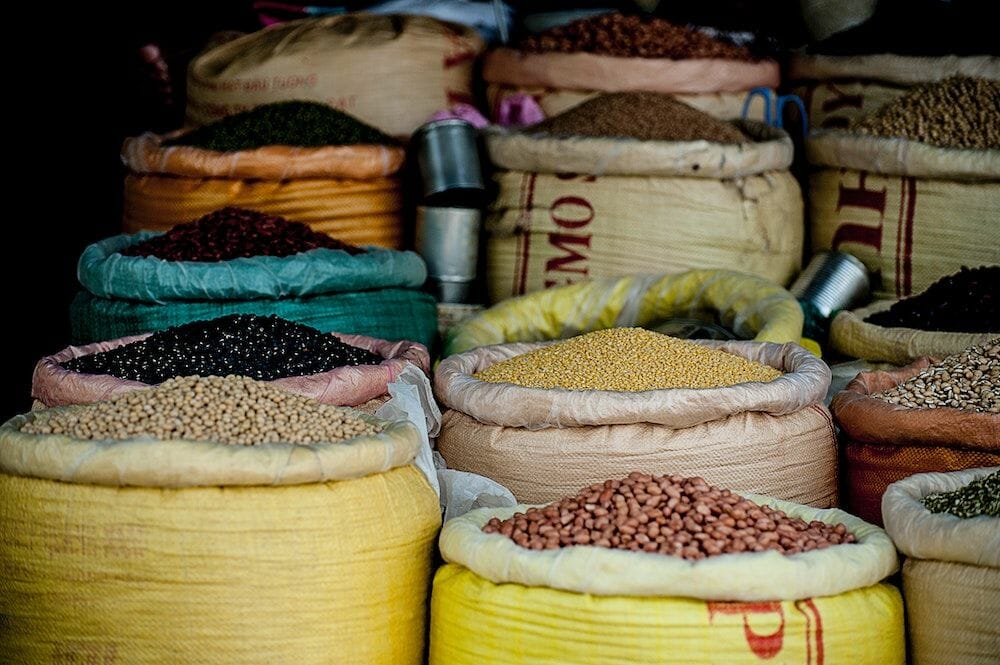Toxins, molds and pathogens are responsible for 500 million tons of food spoilage, which causes nearly $250 billion in food losses and 3% of global greenhouse gas emissions.
“By the time you throw away that tomato in your fridge, it has already led to significant emissions,” Dan White, co-founder of Clean Crop Technologies, tells AFN.
White’s company is developing an environmentally-friendly treatment for post-harvest crops that can safely kill of molds and toxins, ensuring that foods last longer and are safer for consumers.
The Massachusetts-based company has closed a $3 million seed round, led by Prime Impact Fund, an early-stage climate tech impact investing fund. Factor[e] Ventures, Innova Memphis, Syndicate Fund and Alchemy Fund also participated.
“Gas-tech”
Clean Crop’s technology is called “high-voltage atmospheric cold plasma.” What it does is, in essence, is combine air and electricity to create ionized gases that can kill off mold and toxins post-harvest. The reactive gases revert back to ambient air after processing, leaving behind no harmful residues, the company says.
White explains that Clean Crop’s approach is safer than chemical treatments, and also more effective than on-farm solutions.
“There are solutions trying to breed [mold resistance] into the seeds,” says White. The problem with those is that even if one farmer has controlled his crop, when it gets consolidated with other farmers’ harvests, it can become contaminated. “You will have as much contamination as the most poorly-managed crop.”
Clean Crop is focusing first on grains and nuts, where carcinogenic aflatoxins, which permeate crops through soil-based molds, affect up to 40% of harvests worldwide, says White. Clean Crop claims its treatment can remove up to 83% of toxins without harming food quality in the process; remove 99% of molds and pests; and extend shelf-life for perishable foods by up to a week.
Funding from its seed round will enable the company to build out a proprietary “ionized air generator” and begin field tests later this year. Clean Crop is eying commercial deployments in both emerging markets and the U.S starting in 2021.
High-impact
Clean Crop attracted several impact investors to its funding round, owing to the high-impact potential of its technology on both carbon emissions and farmer livelihoods.
“We have conviction that Clean Crop can drastically reduce emissions in one of the largest greenhouse gas wedges, and build a large, self-sustaining business,” said Amy Duffuor, principal at Prime Impact Fund, which is a first-in investor on climate-focused technologies. Clean Crop is Prime’s first agtech investment.
“We have been searching for cutting edge food safety and loss reduction technologies for years,” added Seth Silverman, principal at Factor[e] Ventures, a hardware and deep tech investor focused on early-stage technologies for emerging markets. “In Clean Crop, we’ve found a technology and a team with the potential to remove food safety-related trade barriers that prevent smallholder farmers from accessing high value global markets.”
The way Clean Crop’s technology will serve smallholder farmers, in addition to its commercial applications, is by helping farmers improve the quality of their products, and therefore command higher pricing.
Peanuts with low levels of aflatoxin, for example, can command pricing premiums of up to 30%, says White. That can lead to hundreds of millions of dollars in new revenue from exports.
Back-of-the-envelope numbers of that size signal the importance of agri-foodtech that’s solving issues in the food supply chain as well as on the farm, argues White. “Solutions for the supply-chain may be less sexy, but it’s where the money is, and it’s ripe for disruption.”





